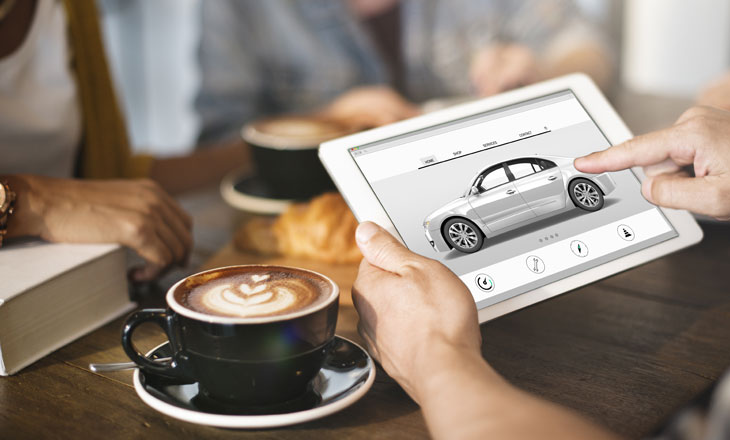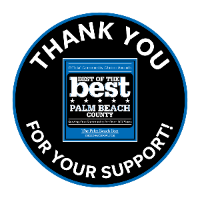Not a Member? Join us today!
It's easy to join! Apply for your lifetime Membership with iTHINK Financial in about 10 minutes.
MEET WITH US ON YOUR TIME
Schedule an in-branch or phone appointment at a time convenient for you.
Featured Products
You can turn to iTHINK Financial for the right solutions to all of your financial needs!
New vs. Used Car: How to Know What’s Right for You
By: iTHINK Financial | Jun 03, 2019

It’s an age-old question—should I buy a new or used car? The answer, as you might have guessed, is not that simple.
Every person’s path to car ownership is different and we all have unique wants and needs. That means that while a new car might be a sound purchase decision for some, a used vehicle may be a better fit for others. Only you know what the right step to take is.
If you’re weighing your options to purchase or finance a new or used car, we’re here to help with a breakdown of the advantages and disadvantages of each scenario.
Buying a New Car
Advantage: Warranty and Lower Maintenance Costs
One of the most attractive reasons to purchase a new car is the vehicle warranty that comes with these models. Most manufacturers offer a 36,000-mile or three-year factory warranty with new car purchases, which could cover anything from regular maintenance to unexpected repairs, depending on your terms. Even if your warranty does not cover maintenance, keeping your new car running smoothly calls for minimal investments over the first few years of ownership.
Advantage: More Financing Options and Low Interest Rate Auto Loans
While buying a new car is typically more expensive than choosing a used one, having the right financing can make a world of difference on the amount you end up having to pay back. Credit unions and other lenders often have new auto loan promos with unbeatably low rates across a variety of terms. A low interest rate, combined with a shorter-term loan, can save you thousands over your repayment period.
Advantage: Advanced Technology in Comfort and Safety
Newer vehicles come equipped with the latest and greatest—everything from top-of-the-line technology to innovative safety features. From blind spot alerts to self-parking capabilities, these features are huge draw for new car shoppers as they offer a level of peace of mind that’s hard for used cars to match.
Disadvantage: Higher Up-Front Costs
With more features and less mileage comes a higher sticker price, not to mention down payments, fees, taxes and other additional costs factor into the true cost of owning a car. Whether through a dealership or auto buying service, purchasing a new vehicle may put a bigger dent in your savings account than a used car. At the same time, these are costs you can plan and save for to make a new car fit into your budget.
Disadvantage: Depreciation
Depreciation is the number one drawback to purchasing a new vehicle. The standard formula states new cars lose 20% of their value as soon as you drive off the lot. On a $20,000 vehicle, that’s $4,000! Of course, depreciation is not unique to new cars. Used cars drop in value too, however that drop is much more significant during the first two or three years of ownership.
Buying a Used Car
Advantage: Lower Up-Front Costs
A used vehicle almost always comes at a lower initial price tag than a new one. While a luxury used car might be priced higher than a new vehicle with base features, in most cases, shopping for a used car means making a smaller up-front investment.
Advantage: Lower Car Insurance Premiums
Because used vehicles typically hold a lower value than new ones, the cost to insure them is also lower. The math is simple—a vehicle that costs less to replace requires less coverage, which can significantly lower your car insurance rate. Unlike new cars, used cars are not required to hold comprehensive coverage, which could add even more to your insurance savings.
Advantage: Slower Depreciation
Used cars tend to hold their value better than new cars. That’s not to say used cars are worth more than new cars, but in terms of depreciation, the rate at which value drops is much slower for used vehicles. While a new car might drop $4,000 one mile from the dealership, used car shoppers may be able to resell their vehicles for close to what they paid originally.
Disadvantage: Reliability and Maintenance Costs
One of the most important parts of purchasing a used vehicle is looking into its condition. Was the vehicle involved in an accident? Was it regularly maintained? These factors may play into future repair and maintenance costs and can tack on thousands to your used car purchase. An older, used vehicle may also break down or need work done to it based on normal wear and tear alone, so consider this when making your decision.
Disadvantage: Can Only Buy What Is Available
When buying a new car, you’ll typically have your choice of make, model, color, interior, features and more, depending on your budget. On the other hand, the used vehicle purchasing process is dependent on what is currently available on the market. If you have your heart set on a red coupe with leather interiors, you may have to extend your search area, be patient or make some compromises.
Ultimately, the decision between a used or new car purchase rests on your shoulders. But with a little bit of research, a lot of preparation and some savvy budgeting, you can get on the road in a car that’s right for you.
Upcoming Events
Check out the upcoming events happening at iTHINK Financial.
Quick Pay and Skip-A-Pay
Make a loan payment or skip your upcoming loan payment without logging in to Online Banking!





